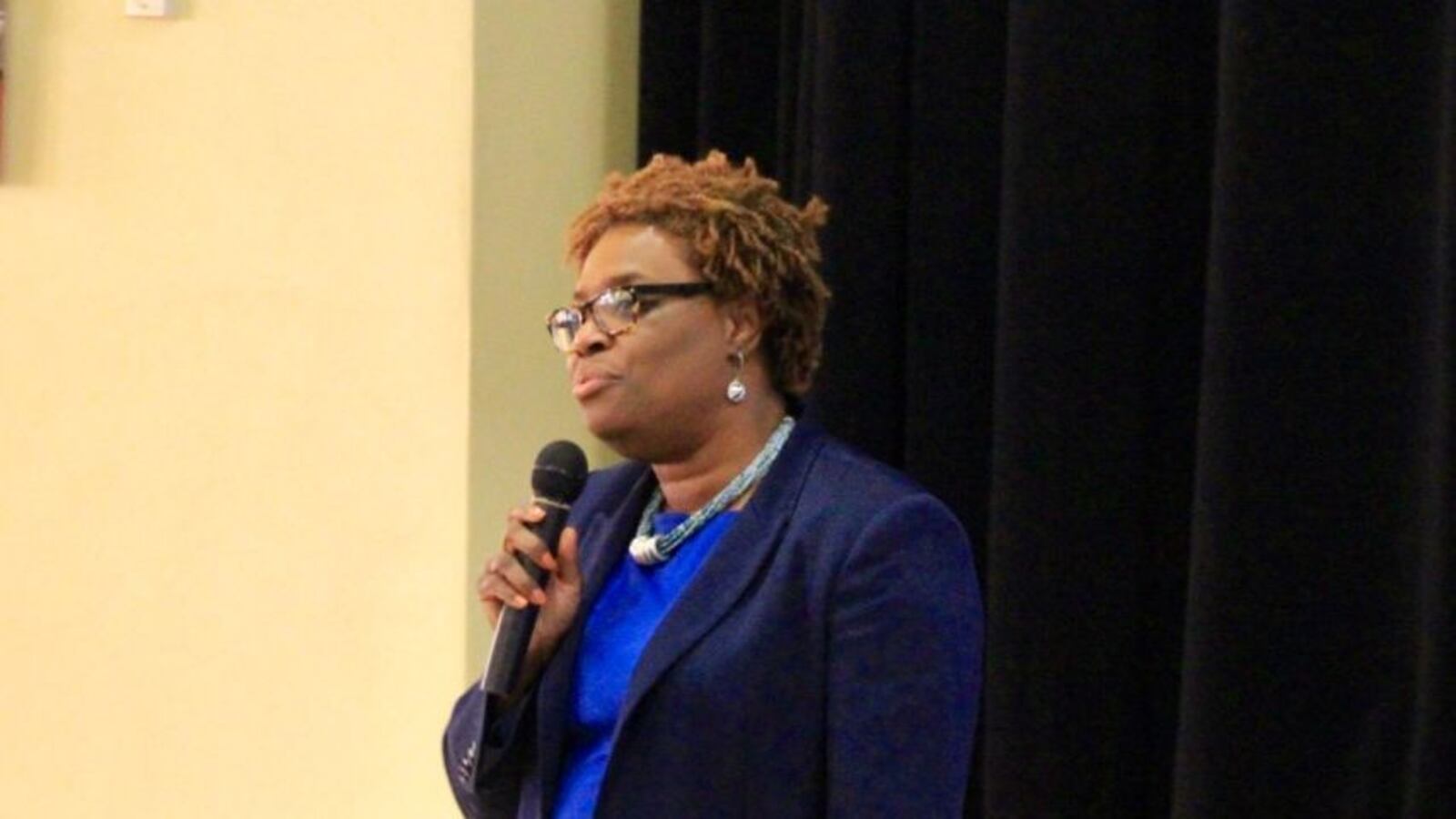Gestalt Community Schools CEO Yetta Lewis says it was a hard decision for the Memphis-based charter network to step away from two state-run schools in its hometown.
Gestalt was an early investor in Tennessee’s unprecedented school turnaround initiative. The network was among the first to sign up for the tough task through the Achievement School District, which launched in Memphis in 2012. But last month, Gestalt also became the initiative’s first operator to announce plans to exit the state-run district.
Left behind will be the students, teachers and neighborhoods of Humes Preparatory Academy Middle and Klondike Preparatory Academy Elementary schools, who are waiting to learn their fate after Gestalt’s departure at the end of this school year.
In an interview with Chalkbeat, Lewis puts the blame for the pullout squarely on chronic under-enrollment borne from declining population in North Memphis and exacerbated by the ASD’s state-imposed cap on out-of-zone enrollment. She says even a 2015 state law that allowed ASD schools to enroll up to 25 percent of their students from outside of their neighborhoods was not enough to keep Gestalt in the game.
In a recent Q&A, Lewis talks about Gestalt’s pullout, its challenges as a state-authorized charter operator, and what its leaders have learned during its years with the Achievement School District.
Here are some of the highlights, which have been condensed for brevity:
What led to the decision to leave the ASD?
It’s about enrollment. We are starting our fourth year at Klondike and our fifth year at Humes. We’ve seen a 15 percent decrease in enrollment each year. We keep trying something new or different but came to realize that over the last four years, people have moved pretty steadily out of North Memphis. There are rows of vacant homes. The school-age population has dropped by 35 percent. Klondike is on the same road as Northside High School (which was closed over the summer by Shelby County Schools), so we knew we weren’t the only schools in that area facing this challenge. We don’t have the capacity to take the loss of two schools on enrollment.
When did you loop in the ASD on your decision? What came next?
Our first official conversation was in October. We were hoping for a big push in enrollment this year. But after Labor Day, we could see that the numbers weren’t going to turn around. When we know something definite, we want to tell our stakeholders as soon as we possibly can. We don’t have a solution on what’s next for these schools, but we want those stakeholders to be involved in the decision-making process. (ASD officials then held meetings with Humes and Klondike parents and faculty in partnership with Gestalt. They’ve set a Dec. 9 deadline to decide their fate in order “to give parents and teachers alike enough time to make informed decision,” said Bobby White, chief of external affairs.)
After this school year, you’ll still have four schools authorized under Shelby County Schools. What are the biggest differences in operating in the ASD vs. SCS?
Turnaround work changed everything for us, but it’s not easy. Not getting a list of eligible students from Shelby County Schools made it difficult (for our ASD schools). We had 180 students on a list for middle school last year, but this year we didn’t receive any list. That was a struggle for us. The list was some level of contact for us. It was a very big challenge to get what we needed. If there’s anything I could change about the ASD, it’d be the ability to have a working list of eligible kids.
Another big difference is the enrollment cap for ASD schools. The population of North Memphis is declining, leaving fewer and fewer students in our zone. But we had families from outside of North Memphis who wanted the Gestalt experience. It’s a big difference for us that the enrollment restraints aren’t there when we open schools under Shelby County Schools.
Would you open another charter school with the ASD in the future?
If conditions were different with enrollment, we would consider operating with the ASD again. We don’t open a school for the sake of growth. When we opened ASD schools, we saw a need for what we do. But enrollment numbers over the years have made it really hard to do what we do. We provide one-to-one technology, a computer for every scholar. We provide every student with a uniform. It’s expensive, and we didn’t have the numbers in North Memphis for our program to be sustainable there. Our program provides educational support that every child deserves.
What are some of the biggest lessons Gestalt has learned in its school turnaround work with the ASD?
Our teacher-leadership program. That wouldn’t have happened without turnaround work. The ASD experience really showed us the value of cultivating teacher leaders in our schools, and we have a program in place now.
Also, our community partnerships, such as Behavior Services MidSouth, Communities in Schools, and Le Bonheur Children’s Hospital. Our work with the ASD taught us how it’s not enough to provide strong academics, but you need strong social and emotional infrastructure as well. Community partners in our schools help us to do the work to serve the whole child. And that’s ultimately the biggest lesson, that we want our kids to feel known, loved, supported and educated.

